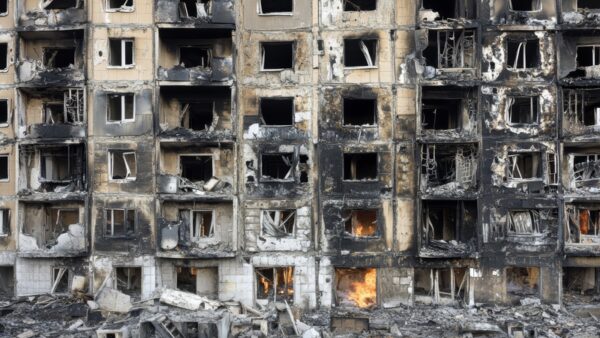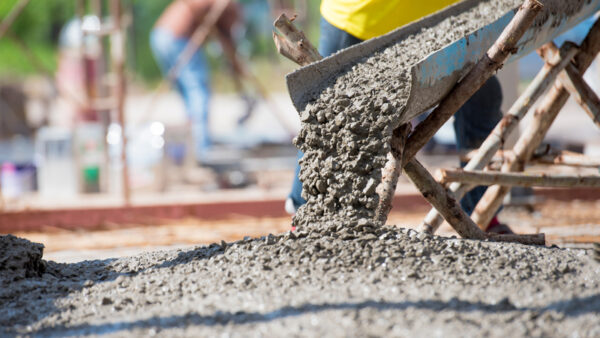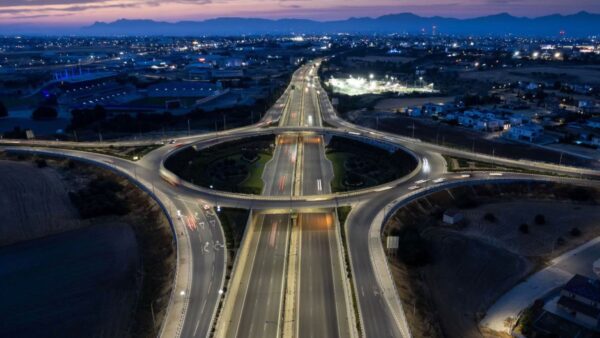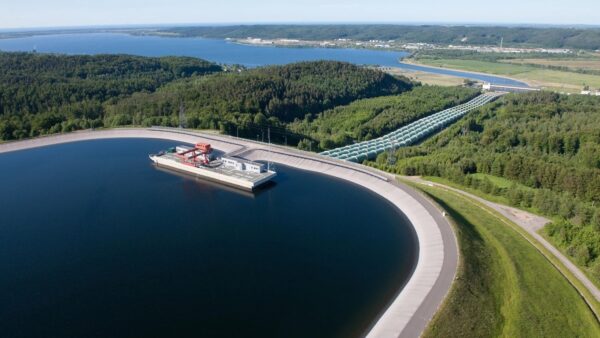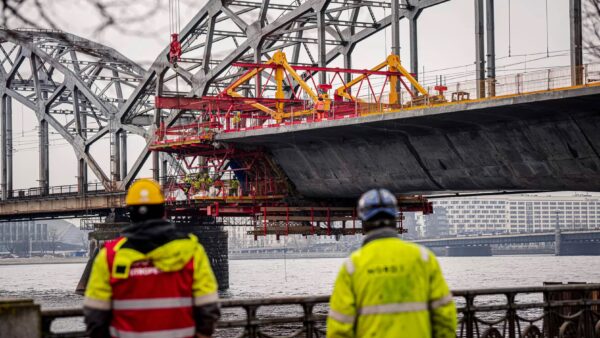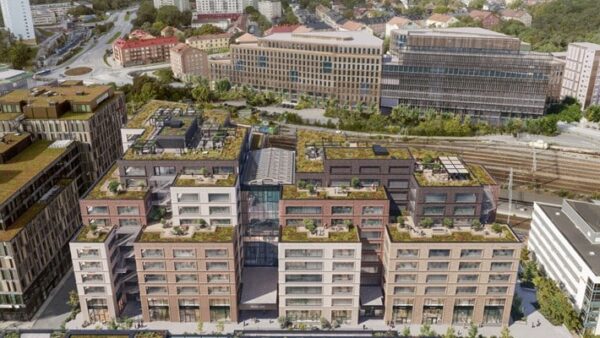Impressive feats of construction, seismic changes to labour relations in the Gulf and setbacks in developing countries feature in this selection from the year’s most read articles.
1. China’s CSCEC completes major highway in Pakistan in record 36 months
23 September 2019
State-owned giant China State Construction Engineering Corporation (CSCEC) celebrated the completion of the 392km Sukkur-Multan motorway in Pakistan, built in what it calls a record-breaking time of three years.Â
Part of the longer Peshawar-to-Karachi Motorway project, the highway is the largest infrastructure project under the multi-billion-dollar China-Pakistan Economic Corridor (CPEC) initiative.
2. Strikes in Qatar: Foreign workers break law to protest over withheld wages
22 August 2019
Foreign construction workers in Qatar received three months’ worth of overdue wages after strikes rocked the Gulf state. Strikes are illegal in Qatar, but the government investigated their complaints and arrested people from two companies.
It then paid outstanding salaries and said workers could change employers, something the Gulf’s hated kafala system of migrant labour rules normally prevents.
Then, in October, Qatar promised to end the kafala system altogether by January 2020, a decision rights groups called a major breakthrough.
3. China freezes three Zimbabwean projects after government raids airport account
29 October 2019
Chinese banks suspended funding for three infrastructure projects worth $1.3bn in Zimbabwe after its government withdrew $10m from an escrow account set up for the refurbishment of Robert Mugabe International Airport.
The decision to raid the account strained relations between Chinese banks and construction companies and their Zimbabwean partners, while exacerbating Chinese concerns about political risk in Zimbabwe.
4. Indian government tells Highways Authority: “Stop building roads”
2 September 2019
The office of the Indian prime minister wrote to the National Highways Authority (NHAI) asking it to stop building roads and hand over the running of completed projects to the private sector.
The prime minister’s office said the NHAI was “totally logjammed by an unplanned and excessive expansion of roads”, resulting in new projects becoming “financially unviable” and leading construction companies to withdraw from them.
It wanted the NHAI to aggressively monetise its assets, either through auctioning off tolling rights to the private sector or by forming infrastructure investment trusts.
5. Air instead of concrete: Plastic bubbles take 1,600 tonnes out of tower
23 October 2019
A two-building commercial and residential development in Mannheim, Germany, cut as much as 35% of the reinforced concrete required in slabs by using a patented void-former system consisting of hard bubbles made from recycled plastic.
The construction team said they saved 1,613 tonnes of concrete and prevented 136 tonnes of CO2 emissions entering the atmosphere by the time the shell of the scheme’s 13-storey tower was finished.
The story prompted reader Daniel Cooling to comment: “Is this not the same principle as the void in hollow core precast slabs? Whilst good thinking, it is similar to a current building product.”
6. China to open $30bn coal railway by end of month
23 September 2019
Deemed the world’s longest heavy freight line, a $30bn railway built to haul coal from China’s northern mines to its eastern and central provinces was set to open by the end of the month.Â
The Haoji line will carry up to 200 million tonnes of coal a year from Inner Mongolia to the city of Ji’an in Jiangxi province, a distance of around 1,800km.
China Railways has been working on the line for the past seven years, and was completing the last section.
The line will fuel China’s network of coal-fired plants – officially capped at 1,100GW – as well as what one recent report described as a “tsunami” of plants under construction, which may add another 259GW of installed capacity.
7. Arizona to get America’s “first car-free neighbourhood built from scratch”
4 December 2019
Ground broke on a residential scheme in the city of Tempe that its developers claimed was “optimised for the peak car era”.
The $140m village will house 1,000 people in 636 units, but instead of streets and parking lots in front of every home, residents will open their front doors to greenery, courtyards and community spaces.
The 16-acre Culdesac Tempe scheme will also include retail space and is located next to a light rail station, giving direct access to the airport and downtown Phoenix.
8. China invests $1.8bn in Ethiopia’s power grid
29 April 2019
In another vote of confidence in Africa’s second biggest country, the State Grid Corporation of China said it would invest $1.8bn in electricity transmission and distribution networks there.
Despite its rapid development – much of it driven by Chinese investment – just 30% of the country has access to electricity and, in areas where there is grid coverage, only 60% of households are connected.
The government plans to build 9,000km of distribution lines and 19,600km of transmission lines.
Developing 60GW of renewable energy is a cornerstone of the country’s 15-year Growth and Transformation Plan. Demand for power is growing at about 30% a year.
In October, prime minister Abiy Ahmed, who forged a peace deal with Eritrea last year, won the 2019 Nobel peace prize.
9. Pakistan property developer gives up £50m London house after crime agency probe
3 December 2019
The UK’s National Crime Agency (NCA) agreed a £190m settlement with Malik Riaz Hussain, a Pakistani national who on Twitter styles himself “Pakistan’s Leading Real Estate Developer & Philanthropist”.
The settlement included a London property at 1 Hyde Park Place valued at approximately £50m. The NCA said his business is one of the biggest private sector employers in Pakistan. The assets were to be returned to the State of Pakistan.
10. US to spend $480m on border wall quality checks after smugglers cut through with cheap saws
8 November 2019
The US Army Corps of Engineers was planning to give companies contracts worth up to $480m to oversee the quality of work on President Trump’s Mexican border wall after reports that completed sections had been breached by smugglers using $100 power saws.
The work will include analysis of contractors’ claims, the identification of potential construction issues and material testing.
Work on the border wall, a flagship policy of the Trump administration, struggled to make progress in 2019. Congress allocated $1.4bn to the Department of Homeland Security, but declined Trump’s request for a $5bn allocation in the 2020 budget.
Top photograph: A section of the newly-built Sukkur-Multan motorway in Pakistan (From the Facebook page of China-Pakistan Economic Corridor)





